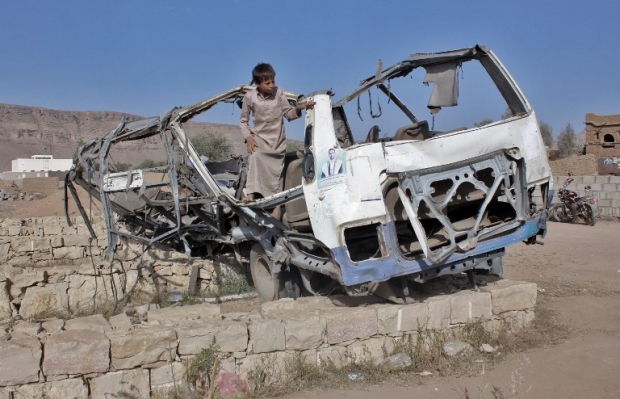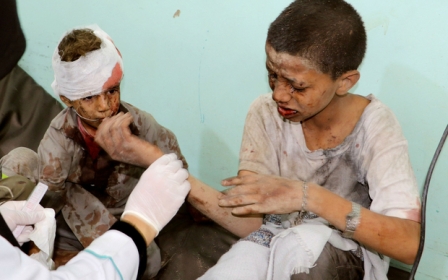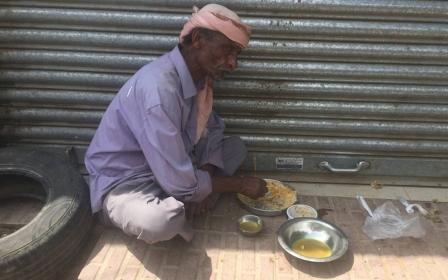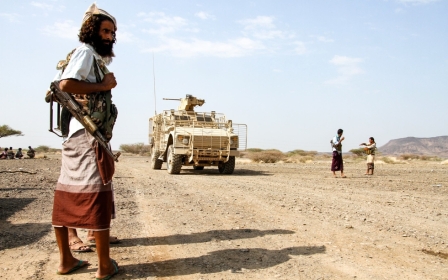Saudi-led coalition admits possible fault for attack that killed Yemeni children
The Saudi-led coalition fighting in Yemen’s war admitted on Thursday that it may have been at fault for a strike on fleeing civilians that killed 23 children.
The 23 August attack, on a vehicle in the city of al-Duraihimi, south of Hodeidah, killed 26 people in total – all women and children – according to the United Nations’ humanitarian operations chief Mark Lowcock.
The head of Hodeidah’s health office, Abdurrahman GarAlla, told Middle East Eye at the time that the victims were all members of the same family.
On Thursday, the coalition’s spokesman acknowledged the deaths.
"According to the results of the comprehensive review... there might have been collateral damage and civilian casualties," Colonel Turki al-Maliki said in a statement carried by the official Saudi Press Agency.
“All documents relating to this incident have been handed over to the Joint Incidents Assessment Team [JIAT] pending assessment and announcement of results," he added, without elaborating on what they might be.
The coalition, which is primarily led by Saudi Arabia and the United Arab Emirates, entered Yemen’s war in 2015 on the side of President Abd Rabbouh Mansour Hadi against the Houthi rebels.
In the following three years the coalition has been roundly criticized for its bombing campaign, which has left hundreds, if not thousands, of civilians dead.
Earlier last month a coalition air strike hit a school bus in northern Saada province, killing at least 40 children.
A Human Rights Watch report on Friday poured scorn on the JIAT’s investigations of the coalition’s actions after such massacres, calling the processes “woefully inadequate”.
HRW added that the JIAT’s flawed investigations are used to shield the coalition’s member states from criticism over their conduct in the war, saying the body routinely downplays attacks and lacks transparency.
The recent heavy tolls in attacks have mounted international pressure on Saudi Arabia and its allies.
Investigations into the Saada attack found a US-made bomb was used to hit the school bus and market it was travelling through.
Similar decisions to freeze arms sales to Saudi Arabia have been taken by Sweden, Germany, Finland, Norway and Belgium.
The freeze “shows a trend of waning European patience regarding the humanitarian disaster unfolding in Yemen”, analyst Kristina Kausch at the Marshall Fund of the United States told MEE at the time.
Middle East Eye propose une couverture et une analyse indépendantes et incomparables du Moyen-Orient, de l’Afrique du Nord et d’autres régions du monde. Pour en savoir plus sur la reprise de ce contenu et les frais qui s’appliquent, veuillez remplir ce formulaire [en anglais]. Pour en savoir plus sur MEE, cliquez ici [en anglais].






